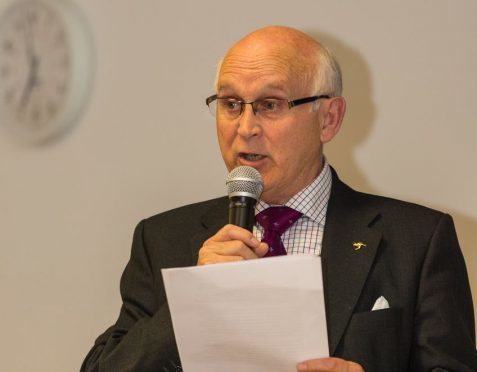A Moray Council hopeful has pledged to follow-through on an election promise – despite fears it could be considered bribery.
Elgin City North independent candidate Sandy Cooper has promised to donate £1,000 of his annual authority salary to each of the five schools in the ward he is standing in if elected.
The cash would total nearly a third of the £16,893 basic salary for councillors.
However, rivals have questioned his generosity by warning it could prompt hopefuls pledging more and more while barring poorer candidates from standing.
The Electoral Commission has also warned that if Mr Cooper hands over the money then it could prompt a bribery investigation.
When the Elgin resident was contacted by the Press and Journal about the possibility of police becoming involved he repeated his vow to help schools in the town, adding: “We will overcome that problem at the time.”
Mr Cooper said his donation was intended to show his commitment to the town and demonstrate he was not a “puppet” of Holyrood or Westminster.
Last night an Electoral Commission spokeswoman said “directly or indirectly” offering money to entice a voter to choose a candidate could be classed as bribery.
However, she added that the distinction between offering personal cash and promising to divert public money to a particular cause would have to be investigated by the police.
At an Elgin hustings event Mr Cooper, who was on the board at Seafield Primary School, said his promise was no different to the Scottish Government offering increased schools funding.
But Stuart MacLennan, agent for Mr Cooper’s Labour rival Nick Taylor, believes it could set a dangerous precedent.
He said: “Forgetting about whether it’s bribery or not it could prompt a race to the bottom – why not offer £6,000 or more for local schools? It wouldn’t be long before someone offered their entire salary.
“I’ve never seen anything as shameless. The reason for councillors getting paid is to ensure it’s not just the rich that can afford to stand, not so they can give it away.”
An Electoral Commission spokeswoman clarified that Mr Cooper’s promise to donate money to schools was within the law – but police could get involved once cash was handed over.
She said: “In electoral law a person is guilty of bribery if they directly or indirectly give any money or procure any office to or for any voter, in order to induce any voter to vote, or not vote, for a particular candidate or option.
“At the moment it wouldn’t appear that any money has actually been given but I should not that if that were the case then it would be a matter for the police rather than the Commission.”
